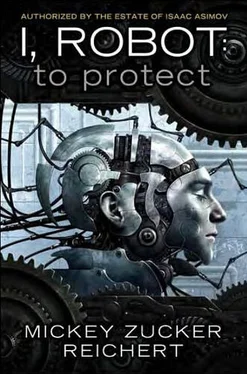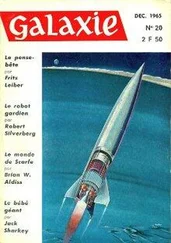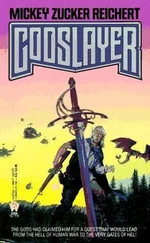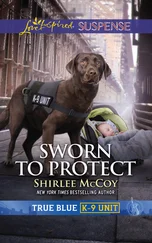Quietly, Susan motioned him inside. Monterey’s gaze went toward him, and the fear that had wholly vanished reappeared.
It’s not Nate who scares her; it’s men in general. Why? Susan’s thoughts immediately went to a history of molestation, and she hated herself for it. She had grown weary of that as the explanation for all things bad. By all reports, Monterey and her father had shared a close and happy relationship. Her problems had begun the day he died. Maybe she’s not afraid of men . . . but for men. Susan tried to take the thought further. She’s afraid that men . . . die. It did not feel quite right. Although psychiatric illness hinged on irrational thought, it usually followed a logical path. She’s afraid that . . . if she bonds with a man, he will die. That made more sense to Susan. It had the proper quality of childhood “magical thinking,” that the world revolved around them and they caused events to happen.
“Do you want me to leave?” Remington asked quietly.
Susan shook her head and motioned him to a distant couch. She did not want a human male to interfere with the rapport she hoped to create between Monterey and Nate. She also had not realized how long it had taken her to create the situation. If Remington had come, all of the other psychiatry residents had left for the day, except for Nevaeh, who was on call.
“Nate, can you sit here?” Susan indicated the front of the car-shaped gurney. The vehicle had only one seat, which the flick of a latch and a pull could turn into a classical gurney; but Nate could perch easily on the support structure for the pulling handle.
Nate did as she asked. It placed him with his back to Monterey, which Susan hoped simulated a car. She had not initially intended to force Monterey to actually relive the trauma, but the idea seemed suddenly sound. Classical therapies had not worked. Forcing her to relive the unpleasantness seemed unlikely to make things any worse, and it might just work. Monterey’s mother had already tried hypnosis; but, even with drug enhancement, that had proven unsuccessful. However, Susan intended to use the little information that had come out of the session to help her set up the current situation.
“You’re driving to Six Flags,” Susan informed Nate.
Nate grasped a pretend steering wheel and made appropriate motions, which impressed Susan. Surely, the robot had never actually driven a motor vehicle. Given the enormous number of choices in public transportation, most humans in cities this populated never bothered to learn. Monterey’s father had clung to his car and delighted in any opportunity to join the traffic.
“It’s a ’twenty-eight Toyota, I believe.”
Monterey’s eyes pinched, and she shook her head ever so slightly.
Susan bit back a smile. Apparently, the girl intended to play the game. She tried again. “A ’twenty-nine Toyota. Blue.”
A light flickered in Monterey’s eyes as she, apparently, fully realized what Susan intended. They widened slightly, and her pupils dilated. Her fingers tightened on the sides of the gurney.
Susan considered aborting the trial, then thought better of it. Monterey had probably suffered the shock of reliving the event many times in her head, as well as with physicians and quacks. Susan doubted she could startle the girl any worse than electroconvulsive therapy. This time, Susan had one thing no one else had: Nate. She only hoped she could interpret Monterey’s thoughts and actions correctly and would make the right decisions to improve rather than worsen Monterey’s condition.
Susan leaned forward to whisper Monterey’s father’s nickname for her into Nate’s ear, along with some vague instructions.
Nate nodded, readjusted his clothing, then retook the driving position. “So, Rey-rey, which ride do you want to go on first?”
Monterey stiffened ever so slightly at the mention of her nickname.
Nate turned his head to look at Monterey briefly.
Instantly, the girl’s breathing quickened almost to a gasp. Her mouth opened, but no words emerged.
Nate turned back to face the imaginary windshield. “How about some cotton candy, Rey-rey?”
The moment Nate returned his focus forward, Monterey relaxed visibly. She looked down, into her lap, saying nothing.
Susan glanced toward Remington, who smiled encouragingly. He had taken a seat well behind the car-shaped gurney, where Monterey could not see him without turning. She showed no sign of doing that.
“Rey-rey?” Nate twisted his head to look at Monterey again. “Cotton candy?”
Again, Susan saw the sudden change in Monterey. Her breathing quickened, her pupils opened, and a sheen of sweat appeared below her nose and across her brow. Suddenly, she raised a hand and pointed decisively toward the front of the car.
Obediently, Nate returned his gaze in the direction she had indicated.
The nonverbal communication with a male impressed Susan, and the subtext seemed obvious. Clearly, Monterey worried that the man driving the car, the father substitute, would lose focus and have an accident. Yet, Susan realized, there was more to her reaction. Her responses seemed too extreme for someone who usually kept all expression and communication hidden. There was more to it than fear. Susan knew she was seeing something else, another emotion she could not yet recognize. Think, Susan. Think.
Nate continued fake-driving, and Monterey’s face returned to neutral. The robot turned his attention to Susan, silently requesting more direction.
Susan ran through her mind, trying to remember what seemed out of place. A dipping of the body, almost hiding. Shifting gaze. She gave Nate a subtle thumbs-up to indicate he should continue as he had started.
Nate cleared his throat. “Rey-rey, if you’re not going to talk to me, how will I know where to take you?” Again, he turned. “This is our special day.”
Susan watched Monterey as closely as she dared. Again, she saw the fear reaction written plainly on her face and also the hunching into her seat, as if she wished to disappear. Her gaze shifted, and she again jabbed a finger forward.
Guilt, of course. Susan believed she had plucked the micro-expression from the overwhelming concern for safety. Monterey’s not worried for her own life; she survived the accident. She’s worried for Nate. And feeling guilty for killing her father. That fit in with Susan’s previous discussions with Nate and John Calvin. The affliction spoke for itself. There was no doubt about it anymore. She definitely said something that caused her father to take his eyes from the road.
The same possibilities presented themselves to Susan as before, the only two things a six-year-old might request in a moving car that a parent might indulge: food or a toy. Susan tweaked her memory by attempting to recall all of Monterey’s nursing notes. She was certain the girl had never shown any aversion toward food, not even the pickiness that usually afflicted young school-aged children. There had been a recent incident regarding a toy. A missing stuffed animal. Monterey had gone as frantic as a mute child can until one of the nurses found it wadded under a sofa cushion in the patients’ lounge. What was it? Susan tried to remember without success. The nurses had referred to it only as Bobo. Bobo. A different memory found itself lodged in Susan’s mind, one of Sharicka watching television with an unfamiliar plush monkey that looked worn and well loved. Bobo.
Susan sprang forward, keeping her voice calm. “Nate, Monterey dropped her stuffed monkey. Its name is Bobo. You don’t want to drive for an hour with a bored child, do you?”
Nate played along. “Definitely not. Where is Bobo?”
Читать дальше












